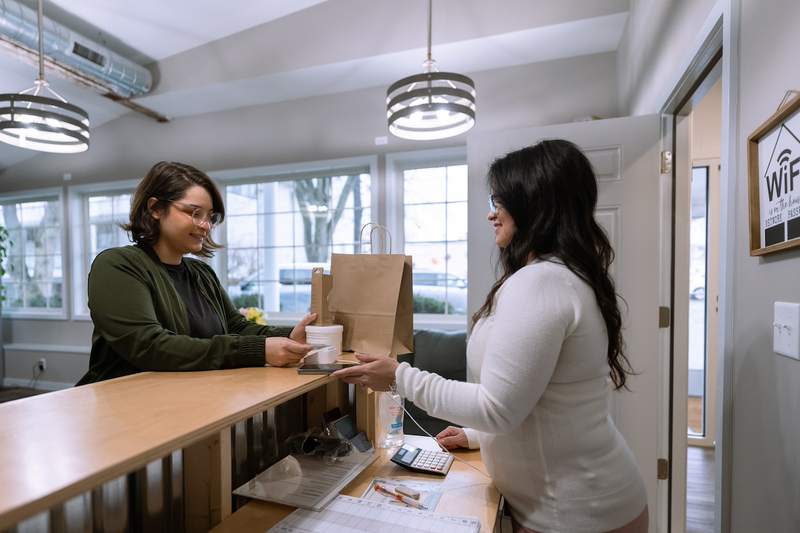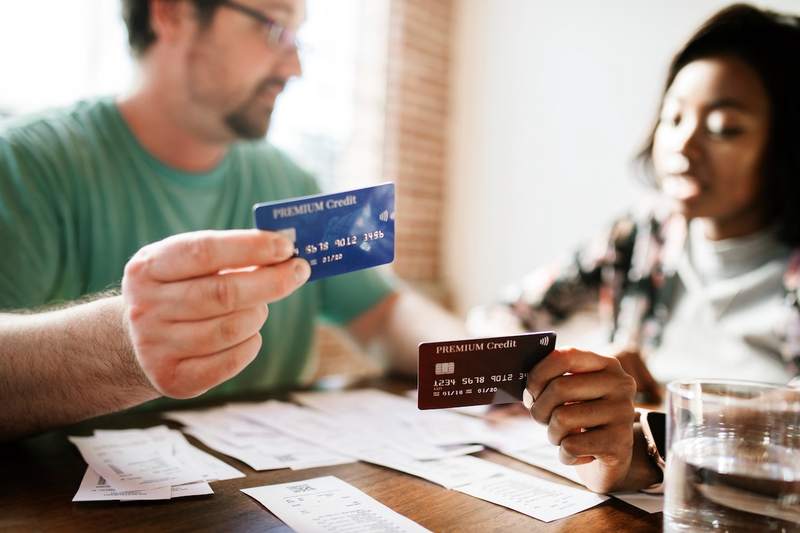When most people borrow a loan, they have every intention of paying it back. With some loans, however, the lender requires more assurance of recouping their costs if a borrower defaults. In these cases, the borrower will pledge an asset as collateral to “secure” the loan. Borrowing with collateral not only assures a lender they’ll get their money back, but it can allow borrowers with lower credit scores to qualify for loans – sometimes with a lower interest rate.
Let’s take a close-up look at how secured loans work. Then, we’ll consider their pros and cons.
Secured Loan Definition
A secured loan, or collateral loan, is typically (but not always) a lump-sum loan backed by a valuable asset, such as a vehicle, real estate or money account. This collateral acts as a guarantee that the lender will be repaid throughout the agreed-upon repayment period.
Loans that don’t require any collateral, like most personal loans, are known as “unsecured” loans. A borrower’s eligibility for an unsecured loan is determined primarily based on a lender’s evaluation of the borrower’s credit score and debt-to-income ratio (DTI).
See What You Qualify For
Buy A Home
Discover mortgage options that fit your unique financial needs.

Refinance
Refinance your mortgage to have more money for what matters.
Tap Into Equity
Use your home’s equity and unlock cash to achieve your goals.
How Does A Secured Loan Work?
Secured loans are generally less risky for lenders to approve. Therefore, as already noted, interest rates can often be lower than with unsecured loans. Getting a loan with collateral can also help borrowers with lower credit scores qualify for financing.
When taking out a secured loan, it’s important to think about the possession you’ll choose to be your collateral and what can happen if you default on your loan.
What Can You Use As Collateral?
Any form of collateral should carry a value that’s equal to or more than the requested loan amount. Lenders also prefer assets that they can easily collect and sell in the event of a default. Assets typically used as collateral include:
- Real estate (home equity)
- Vehicles
- Machinery or equipment
- Liquid assets like stocks, investments or savings accounts
- Insurance policies like life insurance
- Other collectibles or valuables
What Happens If You Can’t Repay A Secured Loan?
Until you’ve paid back a secured loan in full, your lender places a lien on your asset. Translation: If you miss enough payments or default, your lender can take possession of your collateral and use it to recoup their investment. How many payments you have to miss before you lose your collateral varies by lender.
For homeowners, this can mean losing their home through the foreclosure process. Other types of borrowers’ assets will be repossessed or liquidated so the lender can recoup the unpaid loan amount.
If the lender can’t recover the full amount by selling off the collateral, the borrower may be responsible for making up the difference. Additionally, a repossession or foreclosure of an asset can linger on your credit report for up to 7 years.
Types Of Secured Loans
Up next, we’ll explore some of the most commonly available secured loans. All of these financing options will require collateral of some sort to secure your loan.
Mortgage Loans
Probably the most well-known type of secured loan, a mortgage is secured by the house it pays for. As mentioned above, defaulting on a mortgage or missing too many payments often means you forfeit your home to the lender, who can seize the house through foreclosure.
A mortgage is typically necessary to buy a home – the only other pathway to homeownership being to pay in cash.
Secured Personal Loans
A secured personal loan is a lump-sum installment loan that can have a variety of uses that include paying for home improvements, consolidating debt and covering emergency expenses. At 3 – 5 years, loan terms are typically much shorter than a mortgage, and loan amounts traditionally range from $1,000 to $50,000.
Many types of personal loans are unsecured. This means they don’t require collateral and that creditworthiness determines your eligibility.
Home Equity Loans
Home equity loans are similar to personal loans in that they’re a lump-sum loan with various uses. These loans are secured by the equity in your home, and because home equity loans are mortgages, your lender can repossess your home if you fail to keep up with your monthly payments.
HELOCs
Similar to a home equity loan, a home equity line of credit (HELOC) is secured by your home. However, unlike with a home equity loan, you’ll continually borrow from a credit line as you need it and pay off the balance each month. HELOC lenders can seize your home if you’re unable to make on-time payments.
Auto Loans
Similar to a mortgage, an auto loan is secured by the asset it pays for – in this case a vehicle. Falling behind or defaulting on your auto loan can end with the lender claiming your vehicle, potentially completely cutting off your means of transportation.
Secured Credit Cards
Secured credit cards may be an option for borrowers with a low credit score, or no credit history to speak of. Unlike with traditional credit cards, borrowers make a deposit of $200 or more to secure the card. If the cardholder can’t keep up with their monthly payments, the card issuer takes the deposit to cover the unpaid debt.
How To Get A Secured Loan
Secured loans are available through online lenders, credit unions and, of course, traditional banks. Follow this step-by-step process for an easier time acquiring the loan you need.
- Review your credit and budget. Before beginning the process of seeking a personal loan, mortgage or other type of loan, first determine how much you need to borrow and can afford. You should also check your credit score to make sure you can qualify for a loan. If you have excellent or even good credit, it’s possible you can also be approved for certain unsecured loans.
- Assess your collateral’s value. Once you’ve determined how much you want to borrow, you’ll need to evaluate the approximate value of the collateral you’re offering compared to the amount you’re wanting. This can mean getting appraisals for valuable assets, determining the amount of equity in your home or checking the cash amounts in your accounts.
- If you’re borrowing through a traditional bank and using an account you have with the bank as collateral, you may not have access to that account until your loan is paid off.
- Compare offers from lenders. Different lenders can offer different deals, which means that rates and terms tend to vary from one lender to another. Review your available offers and go with the best lender for your situation.
- Submit an application. Fill out an official application with one or multiple lenders of your choosing and submit it for approval. A lender will often run a hard credit check when approving a loan, and some lenders approve applicants with lower credit scores because of the collateral involved in the loan.
Secured Loan Pros And Cons
As you’ve perhaps already concluded, secured loans have various benefits and drawbacks. Let’s review the pros and cons of this financing option so you can have the full picture.
Pros
- Secured loans can offer lower interest rates because of the collateral guarantee.
- Lenders may approve borrowers with less-than-ideal credit because of the added security of collateral.
Cons
- If you default on your loan, you could lose the asset you pledged as collateral.
- Secured loans can be less flexible than unsecured loans and may only be approved for specific uses.
FAQs About Secured Loans
Still have questions about secured loans? See what people are asking – and our answers.
Are secured loans easier to get?
Secured loans can be more attainable for applicants with low credit scores because of the collateral backing the loan. Lenders are taking less of a risk with secured loans because they have the borrower’s collateral to guarantee they can recoup their investment.
Could a secured loan hurt my credit?
The major way a secured loan can hurt your credit is if you fail to make your monthly payments. Missed payments or defaulting can have hugely negative impacts on your credit, and collateral repossession or foreclosure can stay on your credit report for 7 years.
Applying for a loan also involves a hard inquiry of your credit report, which can temporarily lower your credit score.
Can I pay off a secured loan early?
Unless the terms of your loan say otherwise, you should be allowed to pay off a secured loan early if you’re financially able. If there’s a prepayment penalty associated with your loan, you could incur a charge equal to a percentage of the remaining loan balance or a certain amount of interest.
What is the average interest rate on a secured personal loan?
Although largely dependent on your credit score and DTI, an unsecured personal loan’s interest rate is most often between 3% and 6%. That percentage could be lower with a personal loan secured by collateral. Be aware, however, that not every lender offers secured personal loans.
The Bottom Line
Putting up collateral to secure a loan can feel like a big risk, but it could result in easier approval and lower interest rates for certain borrowers. In the case of a home or auto loan, securing the loan with a house or vehicle may be a necessary part of the financing. If you’re confident you can make your monthly payments, though, you shouldn’t have to worry about losing your collateral. As always, it’s best to review your financial situation to determine your best loan options.

Victoria Araj
Victoria Araj is a Staff Writer for Rocket Companies who has held roles in mortgage banking, public relations and more in her 15-plus years of experience. She has a bachelor’s degree in journalism with an emphasis in political science from Michigan State University, and a master’s degree in public administration from the University of Michigan.












